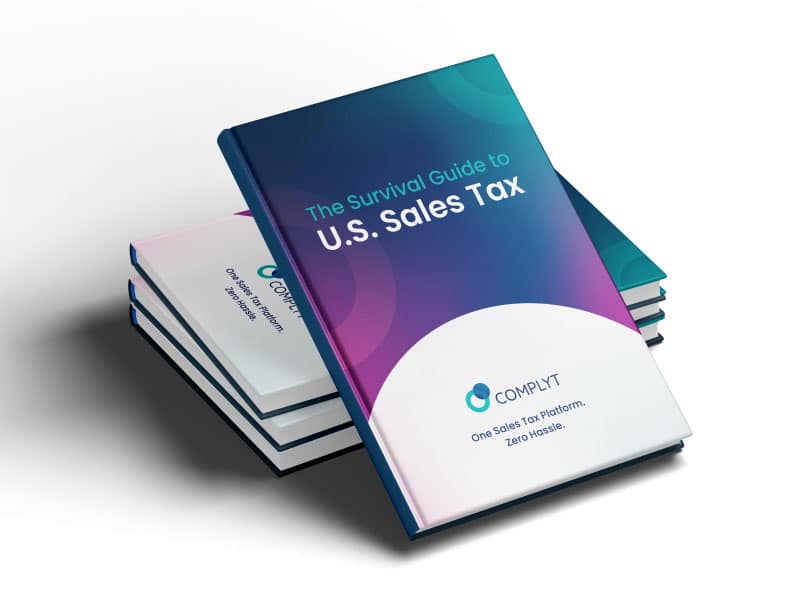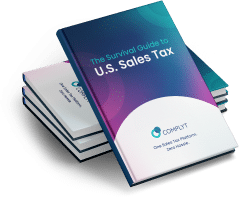What is the sales tax rate in Maryland?
The state of Maryland imposes a 6% sales tax on the retail sale of tangible personal property and certain services. Unlike many other states, there are no local sales taxes in Maryland, so the statewide rate is the only sales tax rate that retailers need to consider.
Sales Tax Maryland: When should your business collect Sales Tax in Maryland?
In Maryland, businesses are required to collect sales tax from customers if they have a physical or economic presence in the state, referred to as “nexus.” Physical presence is established if your business has an office, warehouse, or store in the state. It can also be established by having employees, agents, or independent contractors operating within Maryland.
Economic nexus in Maryland is established if your business has gross revenue exceeding $100,000 or conducts 200 or more separate transactions within the state in the current or previous calendar year.
Maryland Physical Sales Tax Nexus
If your business has a physical presence in Maryland, you are required to collect sales tax from customers in the state.
Sales Tax Physical Nexus checklist for Maryland
Here are some factors that can establish physical nexus in Maryland:
- Owning or leasing property in the state.
- Having employees, agents, or independent contractors in the state.
- Storing inventory or merchandise in the state.
- Providing services in the state.
- Maintaining a temporary or permanent office in the state.
If your business meets any of these criteria, you have a physical nexus in Maryland and are required to collect and remit sales tax.
Maryland Economic Nexus Threshold: Revenue, Thresholds and Transactions
Maryland established economic nexus requirements for remote sellers following the Supreme Court decision in South Dakota v. Wayfair, Inc. In Maryland, a remote seller has economic nexus if they have gross revenue exceeding $100,000 or conducts 200 or more separate transactions within the state in the current or previous calendar year.
Once you’ve met these thresholds, you’ll need to register for a Maryland sales tax permit and start collecting and remitting sales tax on your sales to customers in the state.
Which services are taxable in Maryland?
In Maryland, certain services are subject to sales tax. Here are some examples of taxable services in the state:
- Installation, maintenance, or repair services.
- Rental of tangible personal property.
- Telecommunications services.
- Fabrication services.
It’s important to note that not all services are taxable in Maryland, so it’s essential to check the Maryland Comptroller’s Office website or consult with a tax professional to determine if your specific service is subject to sales tax.
Maryland Sales Tax on Products: How to Calculate What Your Business Should be Charging
In Maryland, the sales tax rate is a straightforward 6% on most taxable goods and certain services. To calculate the sales tax for a transaction, simply multiply the total amount of the sale by 0.06 (6%). For example, if you sell a product for $100, you would charge an additional $6 in sales tax, making the total transaction amount $106.
It’s important to note that the sales tax should be itemized separately on the receipt or invoice provided to the customer. Moreover, some items may be exempt from sales tax or taxed at a different rate, so it’s crucial to familiarize yourself with the specific tax rules for the products you sell.
How much is Maryland clothing tax?
Maryland imposes a 6% sales tax on the sale of most tangible personal property, including clothing. However, there are some exceptions. During the annual Shop Maryland Tax-Free Week, which typically occurs in August, qualifying apparel and footwear priced $100 or less per item are exempt from the state’s 6% sales tax.
Do Maryland sales tax holidays affect Maryland clothing tax?
Yes, Maryland’s sales tax holidays, specifically the Shop Maryland Tax-Free Week, directly affect the clothing tax.
During Maryland’s Tax-Free Week certain clothing and footwear items priced at $100 or less are exempt from the state’s 6% sales tax. It’s a great opportunity for consumers to save on back-to-school shopping or update their wardrobes.
Maryland Online Sales Tax: Are SaaS and Digital Services Taxable?
SInce 2021, digital products, including digital downloads and streaming services, are generally subject to Maryland sales tax. A number of digital services are exempt, though, and businesses should check in with the Maryland Comptroller’s Office to determine the taxability of their services.
SaaS Sales Tax Maryland: Am I exposed as a SaaS provider?
SaaS is not explicitly mentioned in Maryland’s sales tax regulations, and as a result is still exempt from sales tax for the time being. But with the state taking a proactive approach to online sales tax, Maryland SaaS sales tax could soon become a box to tick for SaaS providers, so it’s vital to stay up to date with the latest tax legislation changes.
How can a business get a sales tax permit in Maryland?
To collect sales tax in Maryland, your business must first register for a sales and use tax permit with the Maryland Comptroller’s Office. You can register online or by mail. When registering, you’ll need to provide information about your business, including its legal name, location, and the type of products or services you sell. Once registered, you’ll receive a sales tax permit, which must be displayed at your place of business.
Collecting Sales Tax in Maryland as a Business
Once you have your sales tax permit, you’re required to collect sales tax on taxable sales and remit it to the state. The sales tax should be separately stated on invoices or receipts provided to the customer. It’s essential to maintain accurate records of your sales and the tax collected, as you’ll need this information when filing your sales tax return.
Maryland Tax Return Due Dates Explained
Sales tax returns in Maryland are generally due on a quarterly basis, although some businesses may be required to file monthly or annually, depending on their sales volume. Quarterly returns are due on the 20th of the month following the end of the quarter. For example, the return for the first quarter (January – March) is due on April 20th.
What is the required frequency for sales tax returns in Maryland?
The filing frequency for sales tax returns in Maryland is generally based on your business’s sales volume. Most businesses file quarterly, but those with high sales volume may need to file monthly, while those with low sales volume may be eligible to file annually. Check with the Maryland Comptroller’s Office to determine your specific filing frequency.

